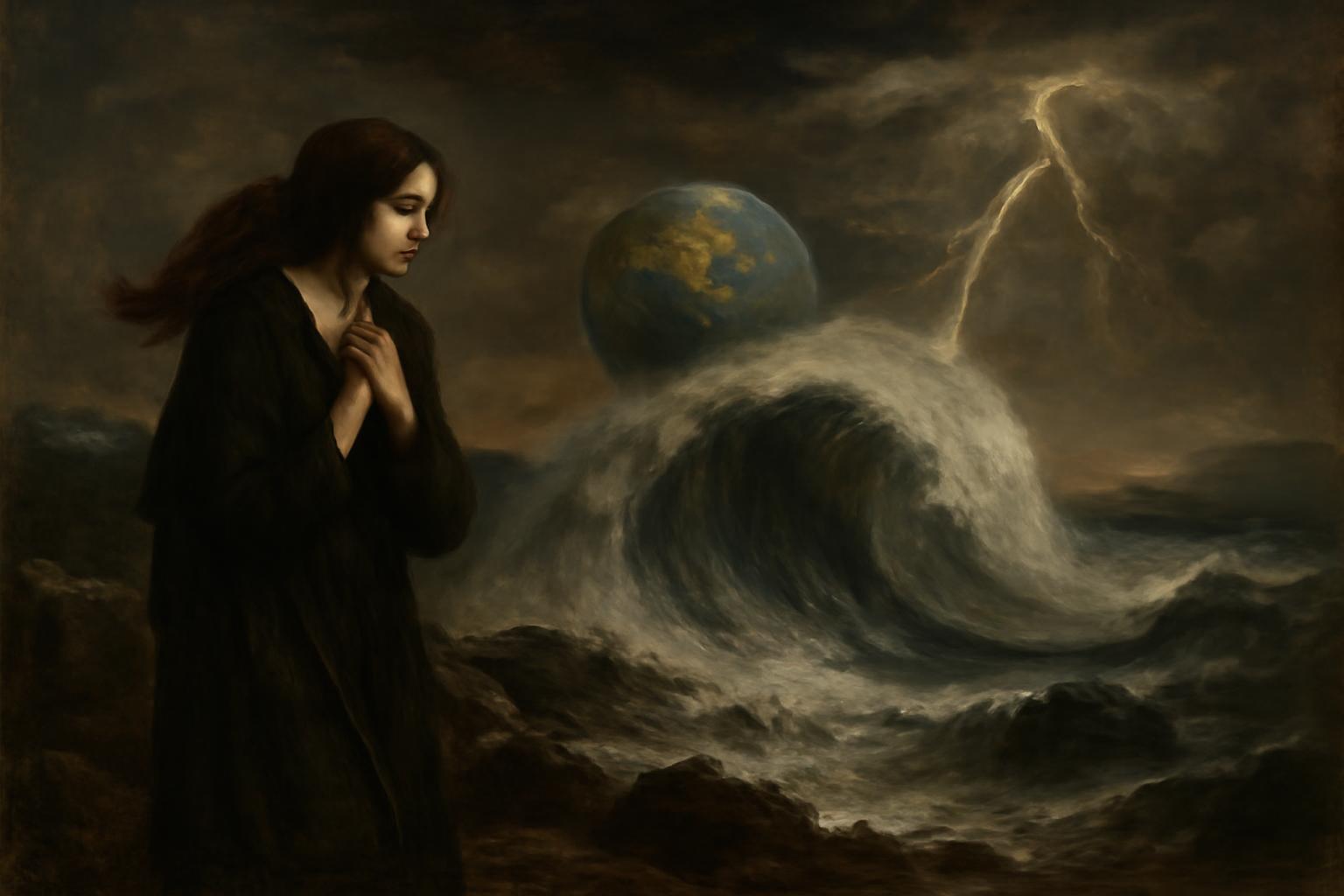How feeble the hopes of mortals tremble on fault lines, as the earth itself, indifferent and titanic, violently shrugs off the petty architectures of man. In Kamchatka, those far eastern ramparts, the ground has thundered—a convulsion so great that it stirred the sleeping tsunamis to trespass upon once-safe shores. Three to four meter waves, harbingers of Poseidon’s ancient wrath, crash where children’s laughter once mingled with the lapping Pacific tide. Across the wide ocean, fragile banners of warning are unfurled in Japan, where the bitter memory of Fukushima still festers; in Hawaii, where weary masses trudge along clogged escape routes; in Alaska and the Philippines, where dread races ahead of the sea’s foam-crested assault.
Astonishingly, the abyss has spared human life—thus far, we hear only of injuries, of emptying towns, of the trembling voices of kindergarteners, their classrooms orphaned by prudence. The damaged stones and timbers are counted, the calculus of ruin tallied; yet, the relentless world goes on, and the animal faith of modernity drives authorities to measures and systems, as if the will to calculation could stave off the old gods of chaos. Even nuclear spectres—Fukushima’s lingering, half-lifeed legacy—are arranged to be orderly, checked against the possibility of apocalypse at the least sign of panic.
The crux of this disaster is not merely in its tremors or waves, but in its echo of what Nietzsche named the terror of existence: the indifference of the world, the unsuspecting violence of the real, which shatters our illusions of control and progress. This is, perhaps, the eternal recurrence—a tragic cycle wherein nature’s indomitable power exposes the fragility of civilization’s scaffold. How far we have fallen from the serenity of the Homeric age, when man contended with destiny in accepting humility, rather than the delusions of technological mastery.
Now, in this twilight of the West, we find ourselves Babel-like—our “advanced warning systems” bleeping into the void, our desperate evacuations a pale reflection of true tragic heroism. We are heirs not to Prometheus, but to Sisyphus: our labors to safeguard against disaster are perpetually undone, and we, blinded by the dazzling lights of modernity, are unseeing of the abyss below. In every shudder of the earth, the world whispers: “You are not as safe as you believe. The gods you no longer worship are still here, and they watch with pitiless indifference.” The camphor scent of civilization hangs thin above the real, and once again we are forced to contemplate—like Oedipus at Colonus—the irreversible decline of our civilization, wandering in darkness, yet half-unwilling to resign ourselves to the tragic grandeur of the human condition.
